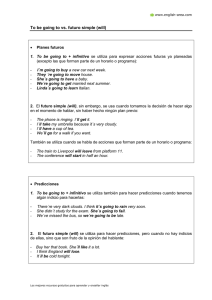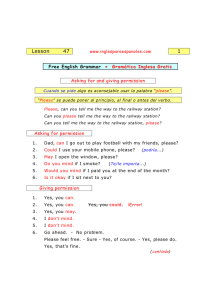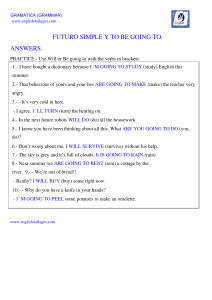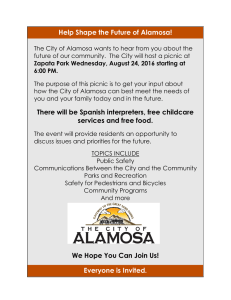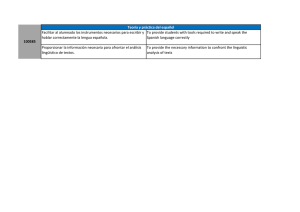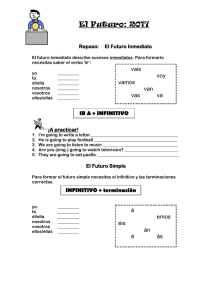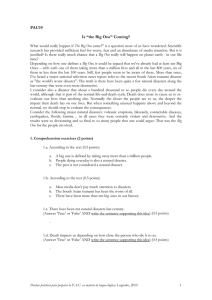Lesson 33 - Future Simple - Progressive - Perfect
Anuncio
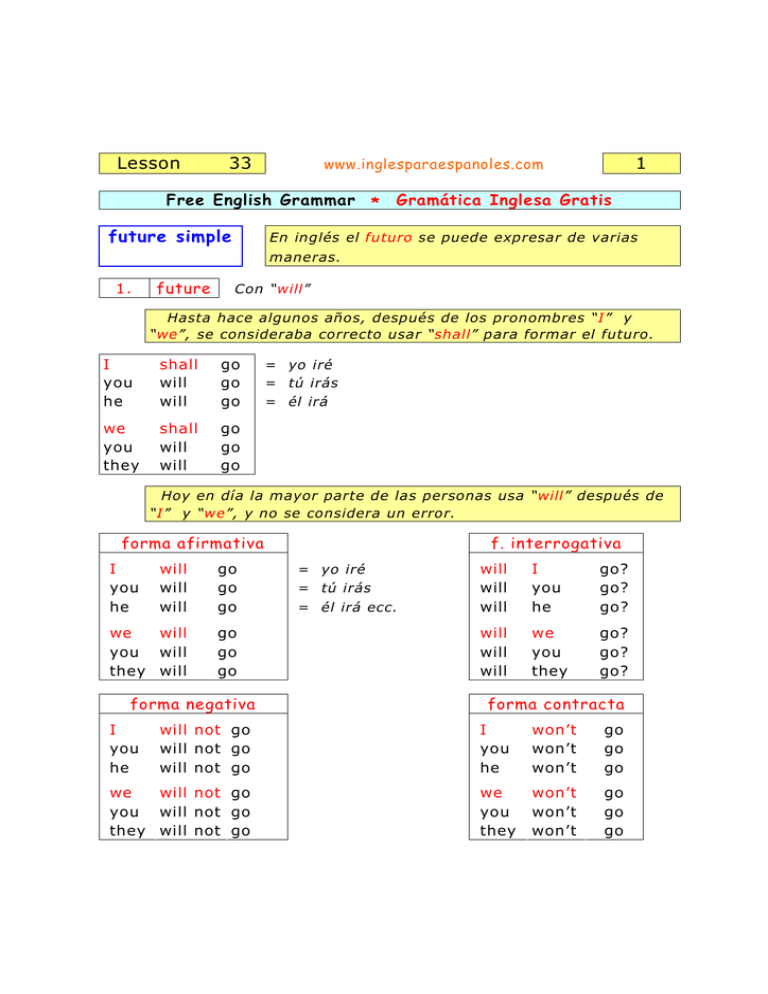
Lesson 33 Free English Grammar * future simple 1 www.inglesparaespanoles.com Gramática Inglesa Gratis En inglés el futuro se puede expresar de varias maneras. 1. future Con “will” Hasta hace algunos años, después de los pronombres “I” y “we”, se consideraba correcto usar “shall” para formar el futuro. I you he shall will will go go go we you they shall will will go go go = yo iré = tú irás = él irá Hoy en día la mayor parte de las personas usa “will” después de “I” y “we”, y no se considera un error. forma afirmativa I you he will will will go go go we will you will they will go go go forma negativa I you he will not go will not go will not go we will not go you will not go they will not go f. interrogativa = yo iré = tú irás = él irá ecc. will will will I you he go? go? go? will will will we you they go? go? go? forma contracta I you he won’t won’t won’t go go go we you they won’t won’t won’t go go go Lesson 33 www.inglesparaespanoles.com Free English Grammar 1. a) > future simple * 2 Gramática Inglesa Gratis Con “will” Usamos “will” para hacer predicciones sobre el futuro: There are many clouds in the sky, it will rain soon. (Hay muchas nubes en el cielo, lloverá pronto.) > I’m sure you will enjoy your holiday in Colorado. > If you don’t study more, you won’t pass your exam. b) Para hablar de hechos futuros que están fuera del control del hablante: > I will be twenty-five next week. > Barbara will be here in five minutes. c) I will be = tendré Para hacer ofertas y promesas: > I will help you to paint your house. > I will come to visit you as soon as I can. d) Cuando tomamos una decisión mientras hablamos: > Wait a moment. I will get you something to drink. > I will do my best to help you, don’t worry. Lesson 33 www.inglesparaespanoles.com Free English Grammar 2. future simple * 3 Gramática Inglesa Gratis Con el “Simple Present” Cuando hablamos de algo ya programado o de un horario: > School starts on September 15 th . > School ends on June 20 th . - What time does the plane leave? - It leaves at five o’clock, and it arrives in Paris at seven. 3. future simple (to leave = salir) Con el “Present Continuous” Cuando hablamos de planes o de preparativos para el futuro: What are you doing on Sunday? = ¿Qué harás el domingo ? Next summer Abel is going to the USA. My parents are coming to see me next weekend. 4. future simple Con “going to” Para hablar de intenciones o planes para hacer algo: > Next term I’m going to study hard. > After visiting Paris, Tom is going to visit Rome and Athens. > What are we going to have for lunch? Lesson 33 www.inglesparaespanoles.com Free English Grammar Future Progressive * 4 Gramática Inglesa Gratis = futuro progresivo When the train arrives, Frank will be waiting for you at the station. (affirmative) (Cuando el tren llegue, Frank estará esperándote en la estación.) Will Frank be waiting...? (interrogative) Frank will not (won’t) be waiting... (negative) Future Perfect = futuro anterior I will have finished this project by Saturday. (affirmative) (Habré terminado este proyecto antes del sábado). Will I have finished this project by Saturday? (interrogative) I will not (won’t) have finished this project by Saturday. (negative)
